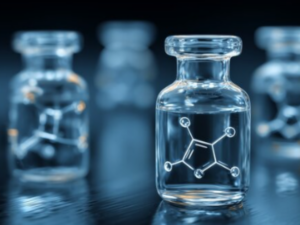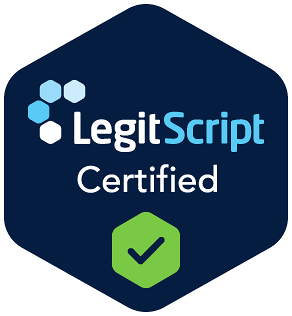Aging is a natural part of life, but it can bring many physical and health problems. But what if there was a way to slow down the aging process? That’s where NAD+ comes in: an essential coenzyme that plays a vital role in many cellular processes. Research has linked lower levels of NAD+ with age-related diseases, which has led to the development of NAD+ therapy as a potential anti-aging treatment. In this article, we will explore what NAD+ is, how it relates to aging, and look at the benefits and side effects of NAD+ therapy so you can determine if it’s right for you.
What is NAD+?
What is NAD+? NAD stands for Nicotinamide Adenine Dinucleotide, and the plus (+) sign indicates an oxidized form when NAD loses an electron. NADH is a reduced form of the molecule, which means that it gains the electron lost by NAD+. It is an essential coenzyme that plays a critical role in many cellular processes. It is found in all living cells, and is responsible for converting food into energy and supporting other metabolic functions. NAD+ also helps to repair DNA damage caused by environmental factors such as UV radiation or pollutants.
What Role Does NAD+ Play in Aging?
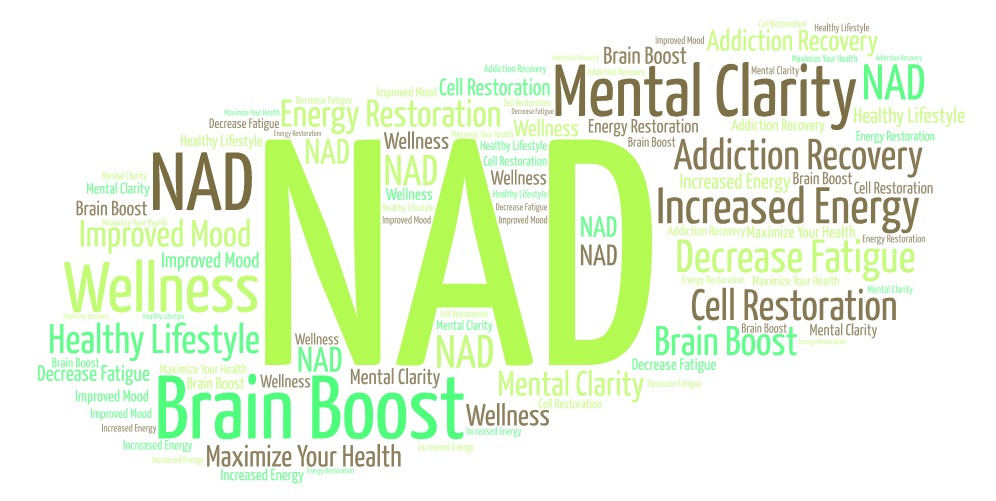
NAD+ can directly or indirectly affect many important cellular functions, such as chromatin remodeling, DNA repair, metabolic pathways, immune cell functions, and cellular senescence. These cellular processes and functions are essential for maintaining cells and metabolic harmony in healthy aging.
As we age, we can link our levels of NAD+ decline to age-related diseases, including cancer and neurodegenerative disorders. To combat this decline, researchers have developed NAD+ therapy – a treatment that could slow the aging process.
NAD+ therapy works by boosting levels of NAD+, which can help to improve metabolic function and protect cells from damage. In addition to its anti-aging potential, NAD+ therapy researchers continue to study it for potential benefits on cognitive health, mood regulation, and insulin sensitivity. While research on the long-term effects of NAD+ therapies is still ongoing, it shows promise in helping people maintain healthy aging.
This research confirms that NAD+ directly affects your body’s rate of aging since it promotes cell repair, among other restorative processes in the body. Optimal levels of NAD+ will result in healthy aging. As the body’s NAD+ levels decrease, your body ages more rapidly. Doctors use NAD+ for anti-aging because it is a substance in the body that, as its levels decrease, results in fewer cell repairs and more signs of aging.
What Are The Benefits of NAD+ Therapy?
NAD+ therapy is an exciting new treatment that has the potential to slow down the aging process. Studies have suggested several benefits of NAD+ therapy, including cognitive improvement, NAD+ for anti-aging results, preventing age-related diseases, increasing lifespan, and improving quality of life.
Improvement of Cognitive Functions
The primary benefit of NAD+ therapy is a cognitive improvement. Research shows that NAD+ plays a role in maintaining healthy brain cells, which can help reduce age-related declines in memory and mental clarity. NAD+ therapy may also help improve focus and concentration as well as protect against neurodegenerative diseases such as Alzheimer’s disease and dementia.
It Reverses Signs of Aging
Another benefit of NAD+ therapy is reversing signs of aging. Studies suggest that increased levels of NAD+ can trigger DNA repair processes, which helps slow down the aging process and prevent wrinkles from forming prematurely. In addition to slowing things down, research suggests that NAD+ can help improve mitochondrial health by boosting cell energy production and helping to maintain youthful skin and hair texture.
May Prevent Age-Induced Diseases
NAD+ therapy can also potentially prevent age-related diseases such as heart disease, diabetes, and cancer. It works by activating sirtuins—proteins responsible for regulating cell metabolism—which can help prevent chronic inflammation associated with these conditions. In addition, doctors believe sirtuins boost immunity by stimulating white blood cells responsible for fighting off infections.
Could Increase Your Lifespan
Finally, research suggests that increased levels of NAD+ can increase lifespan and overall quality of life. It is due to its ability to boost mitochondrial function, which helps increase cellular energy production and improves overall health and well-being throughout life.
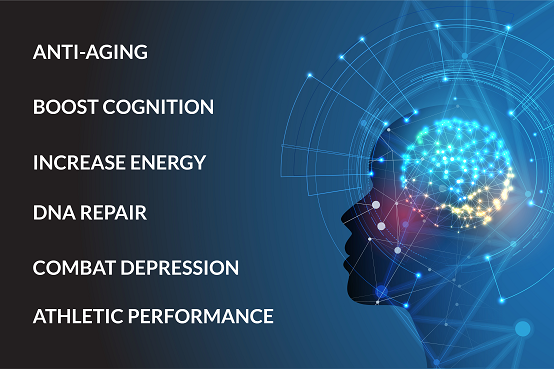
Where Can You Get NAD+ Therapy?
NAD+ therapy is becoming an increasingly popular option to slow the aging process and improve quality of life. Several options are available for those looking to take advantage of this new treatment.
Clinics And Hospitals
In some instances, healthcare professionals can administer NAD+ therapy in clinics or hospitals. In such cases, a doctor may refer the patient, or they may seek out the treatment on their own. However, this option is often expensive, and insurance plans may not cover it.
Those looking for an affordable alternative can opt for private practices offering NAD+ therapy instead. Private practitioners typically provide lower prices than clinics or hospitals while still delivering high-quality service. Additionally, they often provide more flexible appointment times that make it easier to fit into one’s schedule.
Telehealth
For those who cannot access NAD+ therapy in person, some doctor provide telehealth services or remote consultations and treatments via video calls and delivery services for prescription medications and supplements needed for treatment.
No matter which option one chooses, it’s important to carefully research any provider before committing to treatment and ensure they have experience administering NAD+ therapy safely and effectively. Furthermore, consulting with a healthcare professional before beginning any treatment plan is always recommended to ensure that it is safe and appropriate for each patient’s needs.
What Are Some NAD+ Precursors?
NAD+ precursors are substances that you can convert into NAD+ in the body and are essential for maintaining healthy levels of the coenzyme. The most common precursors of NAD+ include niacin, nicotinamide riboside, Tryptophan, and pyridoxal 5′-phosphate.
Niacin
Niacin is a form of vitamin B3 found naturally in some foods like turkey, tuna, peanuts, and avocados. The body quickly absorbs and converts it into NAD+, which it uses for energy production and cell maintenance. Studies have also shown that niacin supplementation may help reduce inflammation and improve cognitive function.
Nicotinamide Riboside
Nicotinamide riboside (NR) is another precursor of NAD+. It occurs naturally in certain foods, such as milk and yeast but can also is available as a supplement. NR increases the amount of NAD+ available to cells for energy production, DNA repair, or gene expression.
When taking medications for high blood pressure, we do not recommend using nicotinamide riboside, as interaction with your prescription could result in lower blood pressure.
Tryptophan
Tryptophan is an amino acid in many proteins that your body converts into NAD+. Research suggests that taking Tryptophan as a supplement may help increase levels of NAD+, although more studies are necessary before we can make any conclusions.
Pyridoxal 5′-Phosphate
Pyridoxal 5′-phosphate (PLP) is a form of vitamin B6 found in certain plant-based foods such as nuts, seeds, legumes, whole grains, and eggs. PLP must first be activated with magnesium before converting into NAD+. It makes magnesium an essential nutrient for maintaining healthy levels of this vital coenzyme.
Nicotinamide mononucleotide (NMN)
Nicotinamide mononucleotide (NMN) is one of the primary precursors of NAD+. Clinical trials and studies on cells and animals have shown that NMN supplements are very effective. As a result, it has led to a massive market for these supplements.
There are small amounts of NAD+ precursors in foods like cow’s milk, vegetables, and meats. These precursors get into cells in different ways. NMN probably gets across cell membranes with the help of the Slc12a8 transporter3. NMN then breaks down into Nicotinamide Riboside (NR), and transporter4 enters cells because it is so tiny.
Is NAD+ Therapy Right For Me?
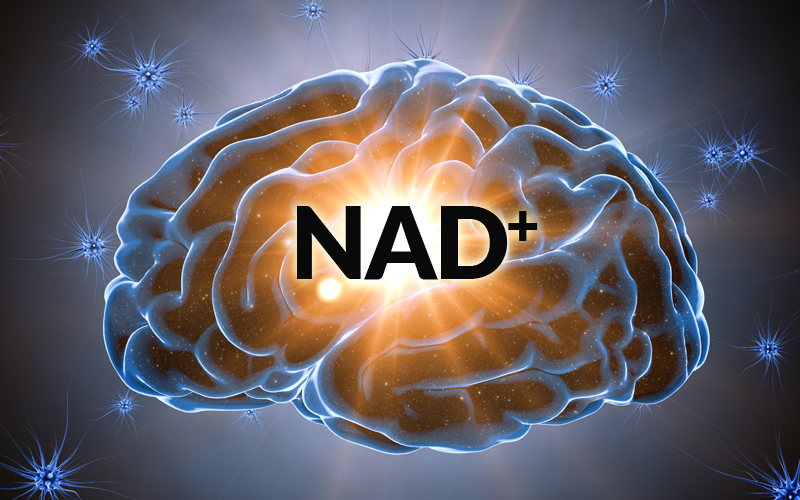
When considering NAD+ therapy, it is crucial that you first consult with a healthcare professional. A doctor can advise whether or not NAD+ therapy is the right course of action for your particular needs and health condition.
After consulting with a doctor, it is essential to research different types of NAD+ therapy and what will work best for you. Other clinics and practitioners offer various treatments, so it is important to find a reputable provider specializing in this treatment. It is also helpful to look into what other people have experienced when using NAD+ therapy and if any reviews are available.
Finally, we recommend you consider the potential side effects of research associated with NAD+ therapy. While most reported side effects are mild and temporary, such as headache, fatigue, nausea, dizziness, muscle cramps, and joint pain, there are still risks associated with this type of treatment, and take the appropriate caution. Before beginning any treatment plan, it is always best to speak to a healthcare professional.
What Are The Side Effects of NAD+?
Physicians generally consider NAD+ therapy to be very safe, with few, if any, side effects. Some people may experience a mild headache or fatigue after the infusion, but these are typically short-lived. There is always a small risk of developing an infection at the injection site, but this is generally rare and easily treatable.
Somatic Responses – (Physical Reactions)
Patients’ most common side effects are nausea, which can sometimes occur. Other potential side effects include dizziness, muscle cramps, and joint pain. It is important to note that most of these side effects are temporary and usually go away within a few days after the treatment is complete.
It May Affect Your Prescribed Medications
It is also important to note that NAD+ therapy may interact with certain medications. Therefore it is essential to consult with your physician before beginning treatment and discuss any current medications you may be taking. Additionally, individuals who suffer from certain chronic illnesses such as diabetes or heart disease should speak with their doctor before beginning NAD+ therapy to ensure the procedure’s safety for them personally.
So, is NAD+ Right For You?
Now that we know what is NAD+, we can determine if it’s right for you. Overall, NAD+ therapy for anti-aging is relatively safe for most people, with no major side effects reported in clinical trials. As with any medical procedure, however, risks are involved, and it is best to consult with a healthcare professional before beginning treatment to assess individual needs. Likewise, you can identify any potential interactions or contraindications that could exist due to pre-existing conditions or existing medications that the individual undergoing treatment might be using.
There are numerous benefits associated with NAD+ therapy for those looking for a way to slow down the aging process or maintain overall health and wellness into old age. We require more studies to determine its long-term effects on humans before making any definitive conclusions about its efficacy for anti-aging purposes. However, it’s clear that there is potential for it to become an important part of any anti-aging lifestyle plan in the future.
Several NAD+ precursors can help maintain its optimal levels in the body: niacin, nicotinamide riboside (NR), Tryptophan, and pyridoxal 5′-phosphate (PLP). The body quickly absorbs niacin, while NR requires consumption as a supplement due to its low natural occurrence in food sources. We may need to supplement Tryptophan because we can’t always get it from our daily diet alone; however, further research is necessary to discover its potential benefits for improving cellular processes like DNA repair or gene expression. Lastly, PLP must activate with magnesium before it can convert into NAD+, making magnesium an essential nutrient for keeping optimal levels of this vital coenzyme.
Alpha Hormones can help you get started on your health goals. We are a medical clinic located in California also offering telehealth services, hormone therapy, peptide therapy, weight management, acute care, and NAD+ therapy. Book an appointment with our board certified medical provider to see whether NAD+ therapy is right for you.



